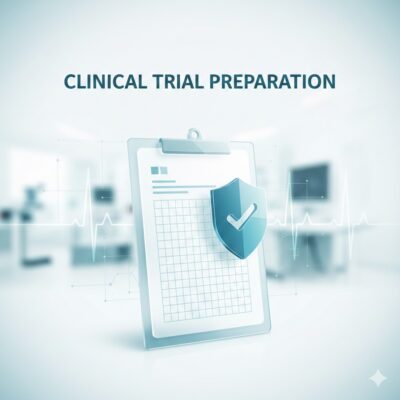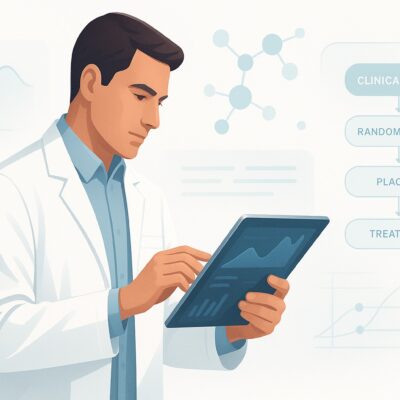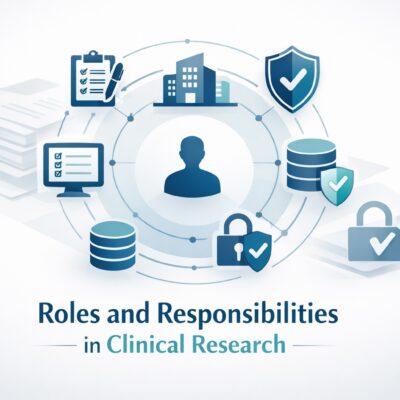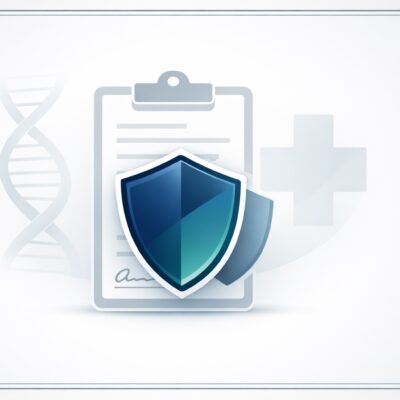Technology Integration in Clinical Trials in 2023 : Transforming the Future of Healthcare
Table of Contents
- Introduction
- The Importance of Clinical Trials
- Technological Advancements in Clinical Trials
- Challenges and Considerations
- Conclusion
- Clinical Trial Preparation
- Introduction to Clinical Research
- Roles and Responsibilities in Clinical Research
- Epidemiology and Evidence-Based Medicine
- Pharmaceutical Medicine
- Ethics in Clinical Research
- Diploma in Clinical Research
Introduction
In the ever-evolving landscape of healthcare, clinical trials play a pivotal role in advancing medical knowledge and improving patient outcomes. In recent years, technology integration has become a driving force behind the transformation of clinical trials. As we step into 2023, it’s clear that the integration of cutting-edge technologies is reshaping the way clinical trials are conducted, making them more efficient, patient-centric, and data-driven than ever before.
The Importance of Clinical Trials
Clinical trials are the backbone of medical research and innovation. They provide a systematic way to evaluate new drugs, treatments, and medical devices, ensuring their safety and effectiveness before they reach the market. These trials are essential for addressing pressing health challenges, developing targeted therapies, and discovering breakthroughs that can change lives.
However, traditional clinical trials have been plagued by challenges such as lengthy timelines, high costs, low patient participation rates, and data management complexities. Technology integration is offering solutions to address these issues, making clinical trials more accessible, patient-friendly, and efficient.
Technological Advancements in Clinical Trials
-
Digital Health Tools and Wearables
Technology Integration in Clinical Trials in 2023 in the form of digital health tools and wearables are ubiquitous in clinical trials. These devices enable real-time data collection, monitoring, and analysis, providing researchers with a wealth of information about a patient’s health and response to treatment. Wearables can track vital signs, physical activity, sleep patterns, and more, offering a comprehensive view of a patient’s well-being.
Moreover, the data collected from these devices can be seamlessly integrated into Electronic Data Capture (EDC) systems, reducing the burden on site personnel and improving data accuracy. Patients can actively participate in their own care by using these tools, fostering a sense of empowerment and engagement.
-
Telemedicine and Remote Monitoring
The COVID-19 pandemic accelerated the adoption of telemedicine and remote monitoring, and these technologies have become integral to clinical trials in 2023. Remote visits and monitoring enable patients to participate in trials from the comfort of their homes, eliminating geographical constraints and reducing the need for frequent site visits.
Telemedicine also enhances patient recruitment and retention rates, as it simplifies the trial experience and reduces the burden of travel and time commitment. Patients can consult with healthcare providers, report symptoms, and receive guidance through secure online platforms.
-
Artificial Intelligence (AI) and Machine Learning
AI and machine learning algorithms are revolutionizing data analysis in clinical trials. These technologies can process vast amounts of data quickly and accurately, identifying patterns and trends that might be missed by human analysts. AI-powered predictive modeling can help optimize trial design, patient selection, and endpoint predictions.
Furthermore, AI-driven natural language processing (NLP) tools are used for mining electronic health records (EHRs) and unstructured clinical data, making it easier to identify potential trial participants and relevant patient cohorts. AI also plays a significant role in adverse event detection and safety monitoring.
-
Blockchain for Data Security
Data security and integrity are paramount in clinical trials, and blockchain technology is becoming increasingly important for safeguarding sensitive patient data. Blockchain ensures transparency, immutability, and traceability of data, reducing the risk of data manipulation or fraud.
By using blockchain, clinical trial stakeholders can securely share and access data while maintaining privacy and compliance with regulatory standards like HIPAA and GDPR. This technology enhances data integrity and builds trust among patients, investigators, and regulatory authorities.
-
Decentralized Clinical Trials
Decentralized clinical trials (DCTs) represent a paradigm shift in how trials are conducted. In 2023, DCTs are gaining prominence as they leverage technology to move away from traditional site-based models. Patients can participate from anywhere, and the entire trial ecosystem is streamlined through virtual interactions and data collection.
Decentralized trials are not only more convenient for patients but also accelerate trial timelines, reduce costs, and enhance patient diversity by including individuals who might not have access to traditional trial sites. This approach is made possible through the integration of eConsent, ePRO (patient-reported outcomes), telemedicine, and remote monitoring technologies.
-
Data Analytics and Visualization Tools
The volume of data generated in clinical trials is staggering, and effective data management and analysis are crucial. Advanced data analytics and visualization tools help researchers extract meaningful insights from complex datasets.
These tools enable real-time tracking of trial progress, identification of potential issues, and adjustment of trial protocols as needed. Data visualization makes it easier for stakeholders to understand and interpret data trends, facilitating informed decision-making.
-
Regulatory Technology (RegTech)
Regulatory compliance is a cornerstone of clinical trials. In 2023, RegTech solutions are aiding organizations in navigating complex regulatory landscapes efficiently. These platforms offer features such as automated document management, audit trails, and regulatory reporting, ensuring that trials adhere to the highest standards.
RegTech also assists in electronic submission of regulatory documents, reducing administrative burdens and speeding up the regulatory approval process. This technology fosters collaboration between sponsors, investigators, and regulatory agencies.
Challenges and Considerations
While technology integration in clinical trials offers immense potential, it comes with its own set of challenges and considerations:
- Data Privacy and Security: Protecting patient data remains a top priority. Robust cybersecurity measures and compliance with data protection regulations are essential.
- Digital Divide: Not all patients have equal access to technology. Addressing the digital divide and ensuring inclusivity are important considerations.
- Regulatory Alignment: Ensuring that technology solutions align with evolving regulatory frameworks is critical to avoid delays and compliance issues.
- Data Quality: Despite the benefits of automation, maintaining data quality and accuracy remains a challenge. Rigorous data validation and monitoring are necessary.
Conclusion
Technology Integration in Clinical Trials in 2023 is reshaping the landscape of healthcare research. The adoption of digital health tools, wearables, telemedicine, AI, blockchain, decentralized trials, and RegTech solutions is making trials more patient-centric, efficient, and data-driven.
This transformation not only accelerates the development of life-saving treatments but also enhances the patient experience by reducing barriers to participation and providing more personalized care. As technology continues to advance, we can expect further innovations that will drive the future of clinical trials and improve healthcare outcomes for all. Embracing these technological advancements is essential for researchers, sponsors, and healthcare professionals to remain at the forefront of medical innovation in 2023 and beyond.
You may be interested in…
-
 eLearning
eLearningClinical Trial Preparation
$99.00 -
 eLearning
eLearningIntroduction to Clinical Research
$199.00 -
 eLearning
eLearningRoles and Responsibilities in Clinical Research
$199.00 -
 eLearning
eLearningEpidemiology and Evidence-Based Medicine
$199.00 -
 eLearning
eLearningPharmaceutical Medicine
$299.00 -
 eLearning
eLearningEthics in Clinical Research
$199.00 -
 eLearning + software
eLearning + softwareDiploma in Clinical Research
$799.00

